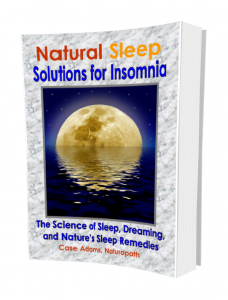Snoring Linked to Strokes, Heart Attacks, Metabolic Syndrome
Several new studies have investigated the notion – first suspected by the possible link between sleep apnea and heart disease – that snoring increases the risk of heart disease and metabolic syndrome.
In this article
Snoring and heart disease risk
Last year researchers from the University of Pittsburgh studied a group of women to see if there was an association between snoring and heart disease. The researchers studied 512 middle-aged black and white women. They found that those women who snored had an increased risk of heart disease and an increased risk of aortic artery calcification. They utilized computed tomography to determine the extent of calcification.
Later in the year, University of Pittsburg researchers followed 42,244 women for between 11 and 16 years. During this period 2,401 were diagnosed with coronary heart disease – either having had a heart attack or stroke, or having undergone artery surgery.
This research found that frequent snoring increased the incidence of heart disease by 54% and increased the incidence of stroke by 41%. The incidence of being diagnosed with any cardiovascular disease rose 46% among those women who snored regularly.
However, when the researchers eliminated other associations linked to heart disease, such as high blood pressure, obesity and diabetes, the increased incidences of heart attack, stroke and cardiovascular disease was only 14%, 19% and 12% respectively.
This means that snoring – which is also significantly associated with obesity – does increase the risk of stroke and heart disease. When snoring is disassociated from obesity and other major heart disease risks, the heightened risk goes down, but it is still there.
This reduction in increased risk along may be a moot point for many Americans, as more than two-thirds of Americans are now overweight. Thus, an overweight woman who snores would likely be at a greater risk of having a stroke or heart attack.
Metabolic syndrome and snoring
Other 2012 research from Bethesda’s Department of Military and Emergency Medicine found in a study of 248 African American men and women that those who snored had more than two-and-a-half times the incidence of metabolic syndrome than those who did not snore regularly.
This study also found that regular snorers were also more likely to be overweight, with a greater degree of body fat.
However, this study found no association between sleep quality and metabolic syndrome – meaning that the increased risk relates more to the act of snoring.
A 2012 study from Russia found similar results. This study of 449 men – about half of whom complained of either daytime sleepiness or snoring – tested the ling between cardiovascular risk factors and snoring.
The researchers found that snorers and poor sleepers had a greater amount of cardiovascular risk factors.
Researchers from Taiwan’s and Chang Gung University studied 309 patients and found that snoring and obstructive sleep apnea were associated with higher levels of high-sensitivity C-reactive protein – considered a significant risk factor for heart disease.
In fairness, one 2012 Australian study found snoring not associated with heart attacks or strokes. Here the study population was 380 people living in Western Australia, who were followed for 17 years.
The confounders of this last study may well be the other lifestyle factors of those involved in the study. Western Australians are also known to spend more time out-of-doors and generally exercise more than most Americans, for example.
Snoring conclusive risk
As all the recent research is taken together, however, we can derive that snoring certainly should be associated with a greater risk of heart disease primarily because those who are obese and have metabolic syndrome are also more likely to snore – as shown in other research.
But there is much to be said about the clear connection between the aortic artery and snoring, as the decrease in oxygen supplied to the body, along with some issues related to the vibration of the soft palate, certainly can have negative effects upon the body.
This of course is added to the fact that snoring tends to lessen sleep quality and produce more waking periods – decreasing slow wave sleep.
Snoring incidence tends to increase with age, obesity, smoking and other risk factors. While these are also associated with heart disease, most of the research quoted here considered and eliminated those associations from their statistics.
The bottom line is that if our sleeping partner lets us know we regularly snore, we should take it seriously. We should carefully consider those elements in our life that may be increasing our risk of heart disease, including obesity, poor diet, lack of exercise and others. There are also a number of strategies that can open our airways and decrease our snoring.
Learn more about sleep science including hundreds of natural sleep remedies and nine natural strategies to reduce snoring:
REFERENCES:
Sands M, Loucks EB, Lu B, Carskadon MA, Sharkey K, Stefanick M, Ockene J, Shah N, Hairston KG, Robinson J, Limacher M, Hale L, Eaton CB. Self-reported Snoring and Risk of Cardiovascular Disease Among Postmenopausal Women (from the Women’s Health Initiative). Am J Cardiol. 2012 Dec 4.
Matthews KA, Everson-Rose SA, Kravitz HM, Lee L, Janssen I, Sutton-Tyrrell K. Do reports of sleep disturbance relate to coronary and aortic calcification in healthy middle-aged women?: Study of Women’s Health Across the Nation. Sleep Med. 2013 Jan 23.
Kazman JB, Abraham PA, Zeno SA, Poth M, Deuster PA. Self-reported sleep impairment and the metabolic syndrome among African Americans. Ethn Dis. 2012 Autumn;22(4):410-5.
Stefanini Dde O, Barros EL, Stefanini R, Pradella-Hallinan ML, Pignatari SS, Fujita RR. Comparing the clinical profile of non obese children with sleep apnea and snoring. Braz J Otorhinolaryngol. 2012 Oct;78(5):22-6.
Total risk for coronary events in cardiac patients due to snoring, daytime drowsiness, and obstructive sleep apnea syndrome. Ter Arkh. 2012;84(9):76-9.
Su MC, Chen YC, Huang KT, Wang CC, Lin MC, Lin HC. Association of metabolic factors with high-sensitivity C-reactive protein in patients with sleep-disordered breathing. Eur Arch Otorhinolaryngol. 2012 Sep 28.
Marshall NS, Wong KK, Cullen SR, Knuiman MW, Grunstein RR. Snoring is not associated with all-cause mortality, incident cardiovascular disease, or stroke in the Busselton Health Study. Sleep. 2012 Sep 1;35(9):1235-40.
Adams, C. Natural Sleep Solutions for Insomnia: The Science of Sleep, Dreaming, and Nature’s Sleep Remedies. Logical Books, 2010.
















